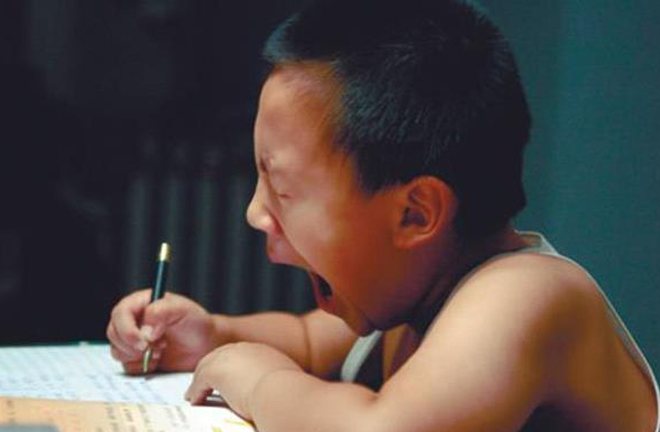Reflection on school load reduction

Heavy workloads impact students by causing both physical exhaustion and psychological stress.
The central and local governments have released nearly 100 policies aimed at relieving the academic burden of students since the Ministry of Education’s 1955 opinion, the first of its kind. The focus of this issue has shifted in recent years to reflect the characteristics of the era and public sentiments toward education.
Five years ago, regulations were drafted that paid special attention to curriculum design and reduction of classroom hours. The amount of homework and number of academic competitions were also restricted. This February, efforts to rein in training agencies targeted nonstandard businesses of training organizations, suggesting solutions to the problem of afterschool care for students. The exploration in this field is becoming more extensive and profound.
The study pressure of Chinese primary and middle school students has been slightly reduced in the past three years. On average, students spent 3.03 hours on homework in 2015 while the figure fell to 2.82 hours in 2017. However, Chinese students still spend longer on homework on average than their peers in other countries, according to a recent report of the 21st Century Education Research Institute, a non-governmental education think tank in China.
In fact, this social problem is common throughout East Asia. Study requires people to work hard and overcome many difficulties in any country or any era. The transformation of society and economy definitely requires education reforms. China’s frequent release of new policies designed to relieve school burden is a product of social transformation, and this is a process that every country must go through, said Teng Jun, an associate professor from the Institute of International and Comparative Education at Beijing Normal University.
Heavy workloads impact students by causing both physical exhaustion and psychological stress. Teng suggested that knowledge still matters a lot even though comprehensive competitiveness has become increasingly important in the 21st century. Since knowledge and technology upgrade so frequently in this era, students need to greatly improve their ability to learn, which is the foundation for any cooperation and innovation.
In the first and second-tier cities, students’ afterschool time and vocations are filled with a variety of training classes for learning talent and knowledge. However, things are different in rural areas. Zhen Lanfang is a primary school headmaster in Wenping, a town in Zhaotong, Yunnan Province, saying that students in rural areas can hardly finish homework after coming back from school since some of them are also responsible for housework. They barely have opportunities to receive extra classes or develop talent. However, these children may have advantages in terms of life skills and physical quality, leading to an increasing education gap with their urban counterparts. In this context, Zhen suggested more support for village schools so that students there can embrace more opportunities for talent training while reducing their curriculum burden.
(edited by MA YUHONG)
